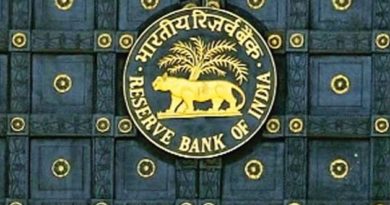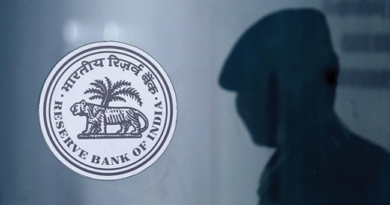DECODING THE COMMERCIAL WISDOM OF COMMITTEE OF CREDITORS
Introduction:
Insolvency and Bankruptcy Code (IBC), 2016, consolidates and amends the laws relating to reorganization and insolvency resolution of corporate persons in a time bound manner for maximization of value of assets of such persons, to promote entrepreneurship, availability of credit and balance the interests of all the stakeholders.
4 pillars of IBC infrastructure are – Insolvency Professionals (IP), Information Utilities (IU), Adjudicating Authorities (AA) & Insolvency and Bankruptcy Board of India (IBBI).
At the heart of the resolution process lies the Committee of Creditors (CoC), a pivotal body responsible for making critical decisions that can significantly impact the fate of a distressed company. This article delves into the concept of commercial wisdom exercised by the CoC and its implications for the insolvency resolution process in India.
The CoC has been enabled under the Code, like the Board of Directors, to take the decisions in respect of the Corporate Debtor, during the currency of the corporate insolvency resolution process (‘CIRP’). As a part of this enabling system, the Adjudicating Authority while commencing the process of CIRP for a company, appoints a resolution professional, who co-ordinates and executes all the decision making during the CIRP and thereby conducts the CIRP of the company. In respect of numerous aspects, Resolution Professional is bound to take the prior approval of the CoC.
The CoC comprises only financial creditors; operational creditors are consequently relegated to a position that leaves them ill-equipped to claim their dues or even adequately participate in the processes which might otherwise allow them to do so.
Commercial Wisdom and Decision-Making:
One of the key principles guiding the CoC is the exercise of “commercial wisdom.” This term refers to the latitude given to the CoC to evaluate and choose the most viable resolution plan based on financial prudence and commercial considerations. The IBC does not mandate the CoC to choose the plan with the highest financial offer but encourages the selection of a plan that ensures the long-term sustainability of the business.
Challenges and Controversies:
While the commercial wisdom principles grant flexibility, it also raises challenges and controversies. The subjective nature of commercial wisdom may lead to disagreements among operational creditors and other stakeholders, potentially resulting in legal disputes. Striking a balance between financial considerations and qualitative factors requires a nuanced approach and thorough deliberation.
Judicial Interpretation and Pronouncements on the Commercial Wisdom of Committee of Creditors
K.Sashidhar–Vs-Indian Overseas bank (2019)
In this case, it is declared that the decision of the CoC commercial wisdom is non-justiciable and that neither the NCLT nor the NCLAT has the authority to reverse it. The amendment to section 30(4) of the IBC, simply restated the factors that the CoC must consider while evaluating a resolution plan and does not grant the tribunals a jurisdiction over the commercial wisdom of the CoC. Under the IBC and the regulations framed thereunder, there was no requirement for financial creditors who disapproves or reject a resolution plan to provide a justification or explanation for their decision.
Essar Steel India Ltd- Vs- Satish Kumar Gupta (2019)
The Supreme Court, in its significant decision in the case of Committee of Creditors of Essar Steel India Ltd., thoroughly discussed the relevancy of the commercial wisdom of the Committee of Creditors (CoC) and stressed upon that the NCLT and NCLAT must work within the framework of IBC and not to interfere with a commercial decision made by the majority of the CoC.
Ashish Saraf – VsBhuvanMadan (2021):
In this case NCLAT stated that the “Committee of creditor’s holds the responsibility of making business decision” regarding the approval or rejection of a resolution plan. This decision involves assessing the feasibility of the resolution plan is considered non-justiciable. Therefore, the commercial wisdom of the committee of creditors cannot be challenged, even if they reject a settlement proposal that is supported by the majority of appellant’s and instead approve a resolution plan proposed by another party. The appellants do not have the authority to challenge the committee’s decision in such matters.
KalprajDharamshi Case (2021):
In the case of Ricoh India Ltd, after the formation of the CoC, different Resolution Plans were proposed by several parties such as Mr.KalprajDharamshi&Mr.RekhaJhunjunwalas group, Kotak Investment Advisors Ltd(KIAL), Karvy Data management systems Ltd and WeP Solution Ltd.
- However, Kalpraj’s Resolution plan was submitted after the designated deadline, prompting objections from KIAL. As a result, the CoC instructed all parties to resubmit their revised plans.
- On this KIAL appealed to the NCLAT, which overturned the NCLT’s ruling and instructed the CoC to reconsider its decision solely based on Resolution Plans that were submitted within the designated time frame.
- Kalpraj and others were dissatisfied with the NCLAT verdict and consequently filed appeals with the Supreme Court.
- The Hon’ble three-judge bench of the SC, in the aforesaid case, confirmed that the CoC’s Commercial decision should not be interfered with except limits set forth in section 30 and 31 of the IBC. Furthermore, it was ruled that the NCLAT’s decision was unlawfull and exceeded its jurisdiction by interfering with the CoC commercial decision-making.
Vallal RCK v M/s Siva Industries &Anr. (2022)
“Importance of the commercial wisdom” of the Committee of Creditors (CoC) was reaffirmed by the Supreme Court in this case, where the court was presented with the question of whether the Adjudicating Authority could challenge the CoC’s decision to end insolvency proceedings based on a settlement agreement. The Supreme Court ruled that the Adjudicating Authority, when evaluating an application under Section 12A of the Insolvency and Bankruptcy Code (IBC), cannot examine the substance of a settlement plan approved by the CoC. In this case, the Supreme Court upheld the CoC decision even though it meant the lenders would have to take a ‘haircut’ of 93.50 percent.
- K. Rajagopalan v. Dr.PeriasamyPalaniGounder&Anr. (2023):
- Tourism Finance Corporation of India Limited (“TFCIL”) filed application under IBC against Appu Hotels Ltd (CD). The approved plan (by 87.39%) was sent back to Appellant/Resolution Applicant to ensure that the amount to be paid to such dissenting financial creditors is not less than what they would have been paid in case of liquidation under Section 53 of the IBC.
- When the Appellant / Resolution Applicant submitted the revised Resolution Plan, instead of placing it before the CoC again for voting, the RP presented the same before the Adjudicating Authority for approval. Notably, while the matter was pending before the Adjudicating Authority, the CD submitted another settlement proposal to TFCIL and requested TFCIL to withdraw its Application under Section 12-A of the IBC. The adjudicating authority rejected the objections raised against the resolution plan and approved the same.
- Upon appeal, Appellate Tribunal reversed the decision of the Adjudicating Authority, rejected the Resolution Plan, and remanded the matter back to the CoC. Aggrieved by this, the appeals were filed before the SC by the RP and RA.
- The SC has observed that under the garb of commercial wisdom of CoC, glaring irregularities in the submission and approval of a resolution plan and not affording an opportunity to the CoC to deliberate on every aspect of the resolution plan including its financial layout cannot be ignored. Therefore, while considering and voting with respect to a resolution plan, the CoC must consider every aspect. If this process is not followed, it cannot be said that the CoC has duly approved the resolution plan and exercised its commercial wisdom.
- The SC stated that presenting the revised resolution plan directly to the NCLT without final approval from the CoC cannot be dismissed as a mere technicality. It is necessary for the CoC to consider the financial layout of the plan before reaching a final decision. Therefore, if a modified resolution plan, regardless of how minor the modification/revision may be, is not approved by the CoC, then presenting it to the Adjudicating Authority for approval is a serious irregularity that cannot be rectified.
3Way Forward:
IBC, in India, imposes the duty of resolution largely on the CoC, which is best placedto maintain the CD as a going concern. An appropriate code of conduct for CoC members has thepotential to support procedural certainty and fairness to the CIRP.
Some guiding principles on Code of Conduct for Committee of Creditors:
(a) demonstrable transparency in the conduct of the CoC especially with regard to conflict-of interest issues.commercial wisdom of CoC to be supported by suitable and reasoned back up informationand data;
(b) maintain arm’s length with RPs in respect of jurisdiction and responsibilities, especially in respect of engagement of professionals and in the area of treatment of avoidance transactions.
(c) appropriate penalties or disciplinary action for a CoC member on account of misconduct or malfeasance while being on the CoC, subject to decisions taken ingood faith applying business judgement rule.
(d) strict adherence to timelines stipulated in the Code and the regulations made thereunder.
(e) minimum stipulated professional and empowered competency of the members representing the creditors in the CoC meetings.
(f) in respect of large resolutions, the CoC to be encouraged to have a heterogeneous composition such as involving experts from different areas of specialisation such as compliance, credit,risk, investment banking, legal and also suggest minimum thresholds of representation for such experts to encourage more diverse and multi-faceted discussions.
The introduction of these principles and processes will strengthen the ability of the CoC to exercise its commercial wisdom for the benefit of the CD, while also ensuring that the interests of all stakeholders are best served and could greatly strengthen the CIRP, maximise value forall stakeholders with high levels of process conduct.
Conclusion:
The commercial wisdom of the Committee of Creditors is integral to the success of the insolvency resolution process under the IBC in India. Balancing financial considerations with qualitative factors, the CoC plays a pivotal role in determining the future of distressed companies. While challenges and controversies may arise, the evolving jurisprudence and judicial scrutiny provide a framework for refining the application of commercial wisdom in insolvency proceedings, ultimately contributing to the effectiveness of the IBC in achieving its objectives.A proper Code of conduct for CoCcan promote transparency and fairness in the insolvency process.




